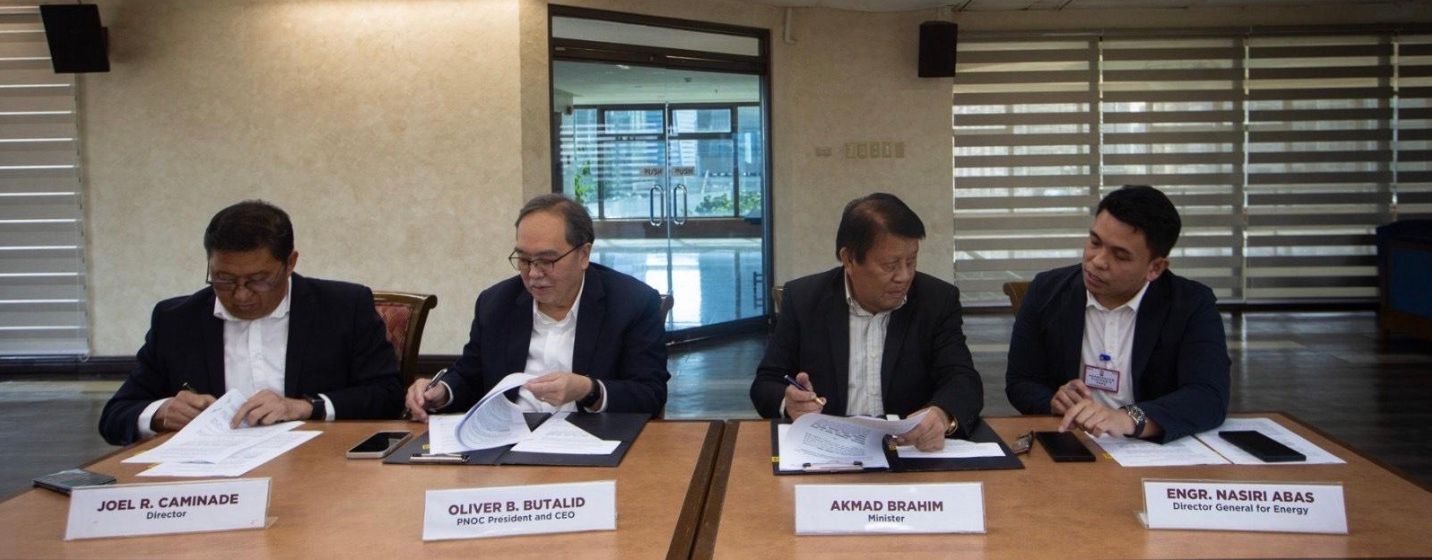At A Glance
- Essentially, cementing the MOU covers the first phase of the collaborative work; while the second phase will require the signing of a firmer memorandum of agreement (MOA), which is also regarded as legally binding; then the third step will be the actual project execution phase.
State-run Philippine National Oil Company (PNOC) will be powering the industrialization goal cast by the Bangsamoro Autonomous Region in Muslim Mindanao (BARMM) for the Polloc freeport zone in Parang, Maguindanao.
The two government agencies have sealed a memorandum of understanding (MOU) on the targeted energy ventures of PNOC in the BARMM domain, which is among the priority areas being pushed by the government for economic advancement.
According to PNOC, the deal highlights their company’s intent to help BARMM develop its energy infrastructure on its targeted journey to industrialization. The MOU was signed between PNOC President and CEO Oliver B. Butalid and Ministry of Environment, Natural Resources and Energy (MENRE) Minister Akmad A. Brahim.

“The objective of this agreement is to explore ways on how to develop the energy sector of BARMM, beginning with its flagship project - the self-generating industrialization of Polloc port,” the company stressed.
Butalid primarily indicated that the cemented partnership is set on a two-pronged development approach that will focus on the conversion of Polloc port into industrial parks.
Following the signing of the MOU, he noted that the next step will delve with “technical cooperation,” and the creation of a technical working group (TWG), “so that we can move forward.”
He explained these forthcoming strides in the partnership signify that “both parties are willing to pull in their resources to make this MOU meaningful.”
Butalid emphasized that PNOC “will be deploying more man hours, more people, and we will get our technology partners to visit the target areas in BARMM because of this.”
Essentially, cementing the MOU covers the first phase of the collaborative work; while the second phase will require the signing of a firmer memorandum of agreement (MOA), which is also regarded as legally binding; then the third step will be the actual project execution phase.
Brahim, for his part, asserted that the BARMM is “committed to exploring new frontiers and creating impactful initiatives that will uplift the lives of the people from BARMM.”
He qualified that “our agreement with PNOC will assume a pivotal role in working closely on various initiatives,” emphasizing that this is “a way to accelerate economic progress, create jobs and provide reliable energy that will power homes, industries, and institutions close to BARMM.”